Podcast: Play in new window | Download (Duration: 9:02 — 6.3MB) | Embed
Subscribe: Apple Podcasts | Spotify | Amazon Music | Android | Pandora | iHeartRadio | JioSaavn | Podchaser | Gaana | Podcast Index | Email | TuneIn | Deezer | Anghami | RSS | More
Monday of the 3rd Week of Advent – An Advent Lectio Divina for the Discerning Heart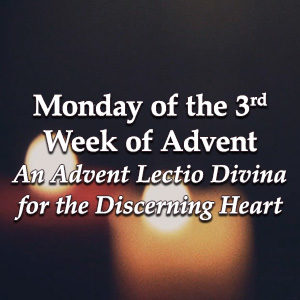
As you begin, take a deep breath and exhale slowly. For at least the next few moments, surrender all the cares and concerns of this day to the Lord.
Say slowly from your heart “Jesus, I Trust In You…You Take Over”
Become aware that He is with you, looking upon you with love, wanting to be heard deep within in your heart…
From the Holy Gospel of St. Matthew 1:18-24
This is how Jesus Christ came to be born. His mother Mary was betrothed to Joseph; but before they came to live together she was found to be with child through the Holy Spirit. Her husband Joseph; being a man of honour and wanting to spare her publicity, decided to divorce her informally. He had made up his mind to do this when the angel of the Lord appeared to him in a dream and said, ‘Joseph son of David, do not be afraid to take Mary home as your wife, because she has conceived what is in her by the Holy Spirit. She will give birth to a son and you must name him Jesus, because he is the one who is to save his people from their sins.’ Now all this took place to fulfil the words spoken by the Lord through the prophet:
The virgin will conceive and give birth to a son
and they will call him Emmanuel,
a name which means ‘God-is-with-us.’ When Joseph woke up he did what the angel of the Lord had told him to do: he took his wife to his home.
What word made this passage come alive for you?
What did you sense the Lord saying to you?
Once more give the Lord an opportunity to speak to you:
This is how Jesus Christ came to be born. His mother Mary was betrothed to Joseph; but before they came to live together she was found to be with child through the Holy Spirit. Her husband Joseph; being a man of honour and wanting to spare her publicity, decided to divorce her informally. He had made up his mind to do this when the angel of the Lord appeared to him in a dream and said, ‘Joseph son of David, do not be afraid to take Mary home as your wife, because she has conceived what is in her by the Holy Spirit. She will give birth to a son and you must name him Jesus, because he is the one who is to save his people from their sins.’ Now all this took place to fulfil the words spoken by the Lord through the prophet:
The virgin will conceive and give birth to a son
and they will call him Emmanuel,
a name which means ‘God-is-with-us.’ When Joseph woke up he did what the angel of the Lord had told him to do: he took his wife to his home.
What did your heart feel as you listened?
What did you sense the Lord saying to you?
Once more, through Him, with Him and in Him listen to the Word:
This is how Jesus Christ came to be born. His mother Mary was betrothed to Joseph; but before they came to live together she was found to be with child through the Holy Spirit. Her husband Joseph; being a man of honour and wanting to spare her publicity, decided to divorce her informally. He had made up his mind to do this when the angel of the Lord appeared to him in a dream and said, ‘Joseph son of David, do not be afraid to take Mary home as your wife, because she has conceived what is in her by the Holy Spirit. She will give birth to a son and you must name him Jesus, because he is the one who is to save his people from their sins.’ Now all this took place to fulfil the words spoken by the Lord through the prophet:
The virgin will conceive and give birth to a son
and they will call him Emmanuel,
a name which means ‘God-is-with-us.’ When Joseph woke up he did what the angel of the Lord had told him to do: he took his wife to his home.
What touched your heart in this time of prayer?
What did your heart feel as you prayed?
What do you hope to carry with you from this time with the Lord?
We thank you, Lord Jesus for this time with you.
Keep us alert, we pray, O Lord our God,
as we await the advent of Christ your Son,
Who lives and reigns with you in the unity of the Holy Spirit,
God, for ever and ever
Amen
Excerpt from THE JERUSALEM BIBLE, copyright (c) 1966 by Darton, Longman & Todd, Ltd. and Doubleday, a division of Penguin Random House, Inc. Reprinted by Permission.


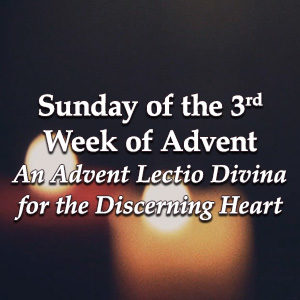 From the Holy Gospel According to St. John 1:6-8,19-28
From the Holy Gospel According to St. John 1:6-8,19-28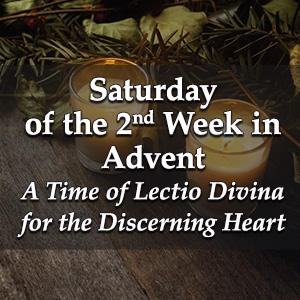
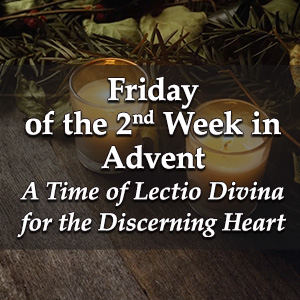
 In this episode, Father Timothy Gallagher discusses the spiritual and personal growth lessons that can be drawn from the character of Frodo in J.R.R. Tolkien’s “The Lord of the Rings”. Host Kris McGregor and Father Gallagher explore how Frodo’s journey and struggles with the responsibility of the ring mirror our own challenges in life.
In this episode, Father Timothy Gallagher discusses the spiritual and personal growth lessons that can be drawn from the character of Frodo in J.R.R. Tolkien’s “The Lord of the Rings”. Host Kris McGregor and Father Gallagher explore how Frodo’s journey and struggles with the responsibility of the ring mirror our own challenges in life.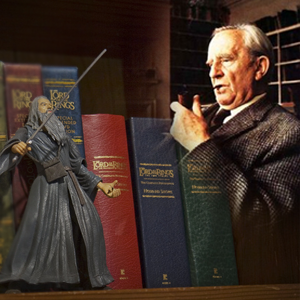

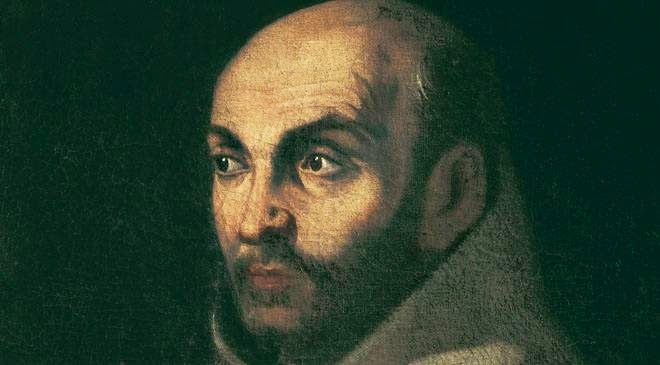

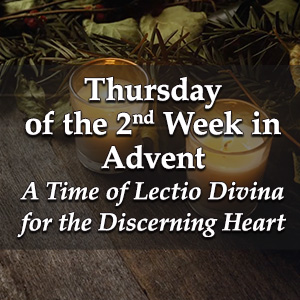 From the Holy Gospel According to St. Matthew 11:11-15
From the Holy Gospel According to St. Matthew 11:11-15
